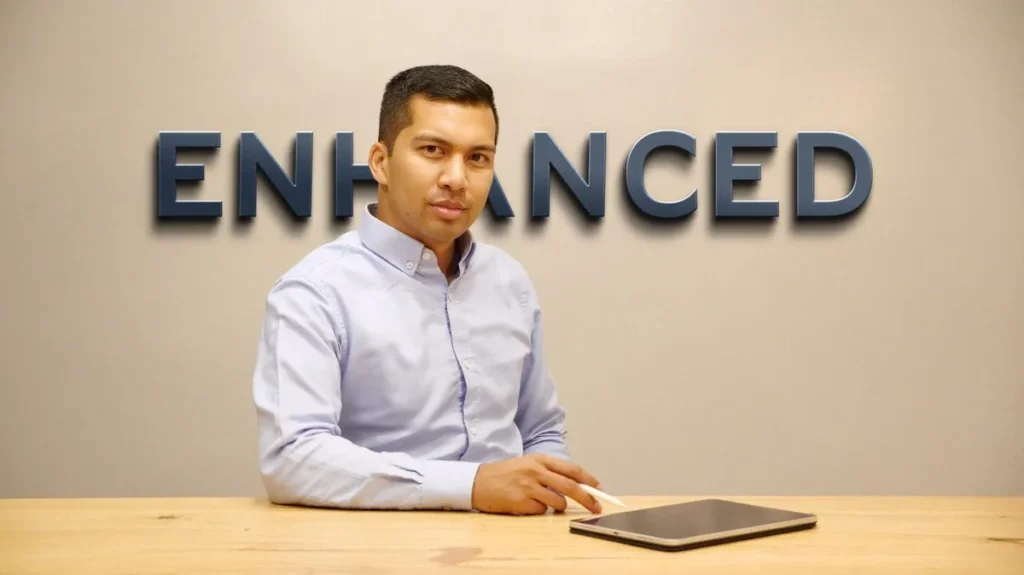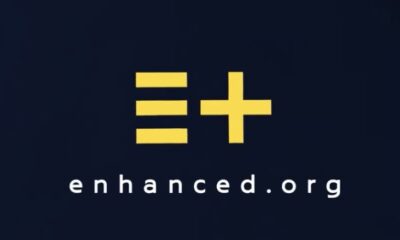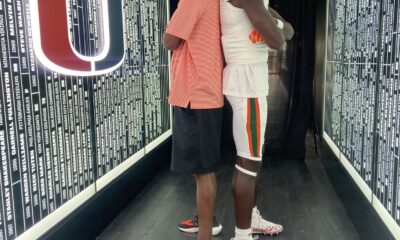Health
The Enhanced Games: A Controversial Pro-PEDs Take on the Olympics
Published
3 months agoon

In a daring departure from conventional sports norms, billionaire entrepreneur Peter Thiel, co-founder of PayPal and Palantir, is making waves with his investment in The Enhanced Games. This pioneering Olympic-style competition, led by London-based founder Aron D’Souza, is disrupting the traditional sporting landscape by encouraging athletes to utilize performance-enhancing drugs. Notable investors such as Christian Angermayer and Balaji Srinivasan have joined Thiel in supporting this venture, sparking intense debates on ethics, health, and the future of sports.
Thank you to Peter Thiel and all the other investors who have backed the pro-science future of sports. https://t.co/ZdTtdIJ9OS
— Enhanced Games (@enhanced_games) January 31, 2024
The Enhanced Games emerged as a response to the limitations and criticisms faced by traditional sporting events. Aron D’Souza, a lawyer known for his involvement in the Peter Thiel-funded privacy case against Gawker Media, believes that The Enhanced Games is a “real, honest, and open celebration of scientific innovation.” With a single-digit million-dollar seed round, the company aims to host its first event in the summer of 2025, challenging the conventions of the Olympic Games.
The core philosophy of The Enhanced Games is to create an open platform for athletes to use performance-enhancing substances without the constraints of drug testing. D’Souza asserts that this approach will combat the prevalent issue of athletes using banned substances secretly and, instead, bring the use of performance enhancements into the open. Despite facing criticism as a “danger to health” and a “joke,” D’Souza remains committed, characterizing the event as a “real, honest, and open celebration of scientific innovation.”
The Enhanced Games boldly positions itself as the “first sporting event in the world without drug testing.” The event’s website applauds athletes involved in doping scandals, deeming the Olympic ban on performance enhancements as a hindrance to scientific progress. While opponents express concerns about the potential health risks associated with performance-enhancing drugs, D’Souza argues that the 200 participating athletes will have clinical supervision, full health insurance, and undergo thorough health checks.
He’s the fastest man in the world and a proud enhanced athlete. He has broken Usain Bolt’s world record. The new Olympics are here, backed by VCs Christian Angermayer and Peter Thiel, where performance enhancements are allowed. https://t.co/OydUh3J6uw pic.twitter.com/P0zKpTzA4T
— Enhanced Games (@enhanced_games) January 31, 2024
Despite encouraging athletes to seek clinical supervision, The Enhanced Games acknowledges that there is no mandatory requirement for the tens of thousands of hopeful participants who may resort to self-administering performance-enhancing drugs. D’Souza recognizes the prevalence of black-market transactions but contends that legal avenues for obtaining these drugs exist. The company maintains its position that it will not distribute performance-enhancing drugs to athletes, leaving the responsibility on the participants to acquire them legally.
D’Souza envisions The Enhanced Games as an Olympic Games tailored for the “era of short attention spans and the TikTok generation.” The event aims to captivate its audience by streamlining its focus, excluding less popular sports, and highlighting specific individual events such as track and field, swimming, gymnastics, combat, and weightlifting. The emphasis is on breaking world records and delivering a spectacle that resonates with the social media age.
For the second time in two weeks, Joe Rogan has talked about the Enhanced Games on his podcast. The world is paying attention. Are you? pic.twitter.com/EZ5PTj6SXY
— Enhanced Games (@enhanced_games) December 28, 2023
One key feature of The Enhanced Games lies in its dedication to cost-effectiveness. In contrast to the Olympics, which involves substantial infrastructure costs, D’Souza has stated that organizing The Enhanced Games can be achieved within the “low double-digit millions” range. The event will take place in existing venues, negating the necessity for extravagant spending on temporary infrastructure and arenas. Additionally, The Enhanced Games intends to revamp athlete compensation by providing a fixed rate for participation, coupled with extra bonuses for event victories and setting world records.
Despite the enormous rivers of gold that flow through the IOC’s coffers, 58% of Olympians report that they live at or below the poverty line.
— Enhanced Games (@enhanced_games) June 19, 2023
Olympians deserve to be paid for their labor.
The athletes of the world are uniting.#Enhanced#Olympics#OlympicSlavery pic.twitter.com/vO7YZ8PG7x
The participation of Peter Thiel in The Enhanced Games’ “multi-million dollar” seed round underscores the project’s significance. In preparation for the inaugural event in 2025, the company aims to raise an additional $10-20 million, with a focus on securing sponsorships and broadcasting deals. Thiel’s track record of success as an entrepreneur and investor enhances the credibility of the project, despite the controversies surrounding it.
D’Souza characterizes The Enhanced Games as a “civil rights struggle of our generation,” positioning it as a battle against the International Olympic Committee and advocating for the liberation of science. The company’s website features rhetoric reminiscent of anti-Olympic propaganda, questioning conventional terms linked to doping and drawing parallels with historical civil rights movements. D’Souza’s individual dedication to the cause, exemplified by his intention to participate in the event, introduces a personal element to the larger narrative.
"Elevating the game in sports and beyond! Let's propel humanity to new heights and discover the untapped limits of the human body. How far can we go? The journey to push boundaries starts now! pic.twitter.com/SsZt9x4dT8
— Enhanced Games (@enhanced_games) January 12, 2024
To address concerns about the health risks associated with performance-enhancing drugs, The Enhanced Games emphasizes its commitment to safety. Dr. Michael Sagner, a member of the games’ scientific and medical advisory board, highlights the adoption of a “sophisticated safety protocol” designed to prioritize the health of its athletes. The event plans to conduct health checks before and after competitions, along with advanced screening for pre-existing conditions, including assessments for cardiac risks.
Striving to set itself apart from traditional sports leagues, The Enhanced Games declares its aspiration to become the “most inclusive sports league in history.” The league welcomes participation from all adults, irrespective of their status as “natural, adaptive, or enhanced, an amateur or a former Olympian.” This all-encompassing approach, coupled with the elimination of specific sports and simplified logistics, aims to create a dynamic and engaging competition.
The movement is starting…how far will you go? Everyone is talking about The Enhanced Games, it's time to join the conversation. pic.twitter.com/i6gjdTIJ12
— Enhanced Games (@enhanced_games) January 9, 2024
While The Enhanced Games aims to be a trailblazer in innovation, critics contend that the event poses significant health hazards and compromises the integrity of sporting competitions. Travis Tygart, CEO of the United States Anti-Doping Agency (USADA), dismisses the concept as “farcical” and labels it a “dangerous clown show.” Legal challenges could emerge, given the legality concerns surrounding specific performance enhancers in numerous states.
The feasibility of hosting Enhanced Game events at various venues is surrounded by uncertainties. These uncertainties extend beyond the permissibility of specific locations to include the acquisition of traditional insurance coverage for potential fatalities or injuries, which may involve athletes, venue workers, and spectators. Key details for the 2025 event, such as the date and location, are currently undetermined, although preliminary ideas exist.
Brett Fraser, the organization’s Chief Athletics Officer, has stated a preference for a university campus or a similar facility in the southern United States. However, a persistent concern still revolves around obtaining approval from insurers for such an unconventional event, considering the liability implications for athletes, venue workers, and spectators.
The successful scaling of the event depends on obtaining sufficient funding, posing a complex challenge for the organization to secure comprehensive insurance coverage for all involved parties. This challenge is compounded by the probable reluctance of traditional insurers to engage with such an event. The pivotal question remains: Would investors contemplate the possibility of self-insuring the event?
Moreover, the approval for hosting such an event on a university campus, amidst considerations of liability and political implications, remains uncertain. The responsibility for making this decision entirely rests on the willingness of the said collegiate board to host an Enhanced Games event. They must carefully assess the potential outcomes, weighing the pros and cons, and evaluating the prospects for revenue generation.
Propelled by the investment of figures like Peter Thiel, The Enhanced Games finds itself at the crossroads of innovation, controversy, and the dynamic evolution of sports. As the event pushes the limits of what is considered acceptable in traditional sports, it triggers a more broad conversation on the roles of science, ethics, and inclusivity in shaping the trajectory of athletic competitions in the future. Whether The Enhanced Games will be celebrated and revered as a groundbreaking milestone or encounter sustained opposition remains uncertain, but it embodies a bold experiment that disrupts the established norms within the sporting world.
Legal


NCAA Intends to Enhance Consumer Protection in Ever-Changing NIL Era
Charlie Baker, the president of the NCAA, has expressed the urgent need to establish a “consumer protection system” tailored for...


Redefining the Game: How One Attorney’s Fight Could Revolutionize College Athletes’ Rights
John “Jake” Krupski, a seasoned labor attorney from New Hampshire, was well-versed in representing the rights of various workers, including...


Clemson Files Lawsuit Over ACC Grant of Rights, Looking for Exit Out of Conference
In a bold move that reverberates across the collegiate sports landscape, Clemson University has taken the Atlantic Coast Conference (ACC)...


The Enhanced Games: A Controversial Pro-PEDs Take on the Olympics
In a daring departure from conventional sports norms, billionaire entrepreneur Peter Thiel, co-founder of PayPal and Palantir, is making waves...


Lawsuit Against Mars Inc. Claims Dark Chocolate Contains Toxic Metals
A proposed class action lawsuit has been filed in New York federal court claiming Mars Inc. failed to warn consumers...


CPAP Machines and Mechanical Ventilators Recalled Over Issues with Foam
LEARN MORE CASE UPDATE: On January 29, 2023, Philips Respironics announced it would halt sales of all its breathing machines in...



